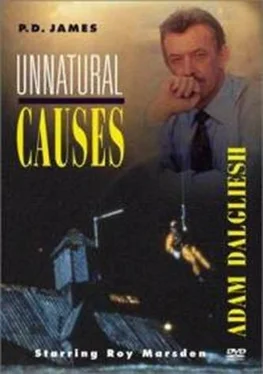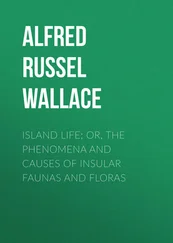P James - Unnatural Causes
Здесь есть возможность читать онлайн «P James - Unnatural Causes» весь текст электронной книги совершенно бесплатно (целиком полную версию без сокращений). В некоторых случаях можно слушать аудио, скачать через торрент в формате fb2 и присутствует краткое содержание. Жанр: Детектив, на английском языке. Описание произведения, (предисловие) а так же отзывы посетителей доступны на портале библиотеки ЛибКат.
- Название:Unnatural Causes
- Автор:
- Жанр:
- Год:неизвестен
- ISBN:нет данных
- Рейтинг книги:4 / 5. Голосов: 1
-
Избранное:Добавить в избранное
- Отзывы:
-
Ваша оценка:
- 80
- 1
- 2
- 3
- 4
- 5
Unnatural Causes: краткое содержание, описание и аннотация
Предлагаем к чтению аннотацию, описание, краткое содержание или предисловие (зависит от того, что написал сам автор книги «Unnatural Causes»). Если вы не нашли необходимую информацию о книге — напишите в комментариях, мы постараемся отыскать её.
Unnatural Causes — читать онлайн бесплатно полную книгу (весь текст) целиком
Ниже представлен текст книги, разбитый по страницам. Система сохранения места последней прочитанной страницы, позволяет с удобством читать онлайн бесплатно книгу «Unnatural Causes», без необходимости каждый раз заново искать на чём Вы остановились. Поставьте закладку, и сможете в любой момент перейти на страницу, на которой закончили чтение.
Интервал:
Закладка:
It was easy to see that the house had once been part of a monastery. This room must have been the refectory. It was a huge version of the sitting room at Pentlands but here the oak hammer beams, smoked with age, arched against the roof like great trees and merged into a black void nearly twenty feet above the faint sphere of the six tall candles which lit the dining table. The fireplace was the stone hearth of Pentlands but magnified into a small cavern in which the great logs burnt steady as coal. The six vaulted windows to seawards were shuttered now but Dalgliesh could still hear the murmur of the sea and, from time to time, a soft moan which suggested the wind was rising.
Alice Kerrison sat opposite Sinclair, a plump, quiet, self-possessed woman, sure of her place and chiefly concerned, as far as Dalgliesh could see, to ensure that Sinclair overate. When they were first introduced he had the immediate sensation that he had met her before, that he had even known her well. Then almost instantly he realized why. Here, personified, was the Mrs. Noah of his childhood’s Noah’s Ark. Here was the same straight hair, black and smooth as paint, drawn back from a centre parting into a tight little bun at the nape of the neck. Here was the same dumpy and compact figure with its tiny waist and the well-recalled face, round, ruddy-cheeked and beaded with two bright eyes. Even her clothes were familiar. She wore a plain black dress, long-sleeved and bordered at neck and cuffs with narrow bands of lace. The whole was as evocative of the doldrums of childhood Sundays at his father’s vicarage as the sound of church bells or the morning smell of clean woollen underwear.
He glanced across at her as she poured the coffee and wondered what her relationship with Sinclair was. It was hard to guess. She didn’t treat him as if he were a genius; he didn’t treat her as a servant. Obviously she enjoyed looking after him but there was something matter-of-fact, almost irreverent in her calm acceptance of him. At times, bringing the food to the table together as was their obvious habit, conferring a little anxiously over the wine, they seemed as close and secret as conspirators. He wondered what had prompted her to pack her bags that morning, six years ago, and leave Maurice Seton for Sinclair. It struck him that Alice Kerrison probably knew more about Seton and his relationship with his wife than anyone else in the world. He wondered what else she knew.
He let his eyes slew round to where Sinclair sat with his back to the fire. The writer looked smaller than his photographs suggested but the broad shoulders, the long, almost simian arms, still gave an impression of great strength. His face was thickening with age so that the features were smudged and amorphous as an underexposed print. The heavy folds of skin hung about his face. The tired eyes were sunk so deep under the springing brows that they were almost invisible, but there was no mistaking the proud carriage of his head nor that great dome of white hair which shone now like a burning bush in the light of the fire, reinforcing the impression of some archaic Jehovah. How old was he, Dalgliesh wondered. The last of his three great novels had been published over thirty years ago and he had been middle-aged then. Three books were a slight foundation for such a solid reputation. Celia Calthrop, peeved by her failure to persuade Sinclair to participate in a Monksmere Literary Festival, accept the dedication of one of her novels or even invite her to tea, was fond of saying that he was overrated, that it was quantity as well as quality that constituted greatness. Sometimes Dalgliesh thought that she had a point. But, always, one returned to the novels with a sense of wonder. They stood like great rocks on the foreshore where so many literary reputations had crumbled like sandcastles in the changing tide of fashion. Priory House would one day disappear beneath the sea but Sinclair’s reputation would stand.
Dalgliesh was not so naïve as to suppose that a great writer is necessarily a good talker nor presumptuous enough to expect Sinclair to entertain him. But his host had not been silent during the meal. He had spoken knowledgeably and appreciatively of Dalgliesh’s two volumes of verse but not, his guest felt, out of any desire to please. He had the directness and self-absorption of a child. As soon as the topic ceased to interest him he changed the subject. Most of the talk was of books although he had no further interest it seemed in his own, and his favourite light reading was, it appeared, detective fiction. He was completely unconcerned with world affairs. “Men will either have to learn to love each other, my dear Dalgliesh, in the entirely practical and unsentimental use of the word or they will destroy themselves. I have no further influence either way.” And yet, Dalgliesh felt that Sinclair was neither disillusioned nor cynical. He had detached himself from the world but neither out of disgust nor despair; it was merely that, in extreme old age, he had simply ceased to care.
He was talking now to Jane Dalgliesh, discussing apparently whether the avocet was likely to nest that year. Both of them were giving the subject the serious attention which other topics had failed to excite. Dalgliesh looked across the table at his aunt. She was wearing a cherry-red blouse in fine wool, high-necked and with the sleeves buttoned almost as high as the elbows. It was an appropriate dress for dining out on the cold eastern seaboard and she had worn it with little variation as long as he remembered. But now inexplicably it was in fashion and to her individual, dégagé elegance was added the hint of a contemporary smartness which Dalgliesh found alien to her.
Her left hand was resting against her cheek. The long brown fingers were heavy with the family rings which she wore only in the evenings. In the candlelight the rubies and diamonds struck fire. They were talking now of a skull which Sinclair had recently picked up on his stretch of the beach. It was usual for the drowned graveyards to yield up their bones and, after a storm, walkers on the shore could expect to find an occasional femur or scapula bleached by the sea and friable with age. But it was less usual to find a whole skull. Sinclair was discussing its probable age and with some expertise. But so far there had been no mention of that other, more recent body. Perhaps, thought Dalgliesh, he had been wrong about the motive for this dinner party. Perhaps Sinclair wasn’t interested in Seton’s murder after all. But it was difficult to believe that he had merely had a whim to meet Jane Dalgliesh’s nephew. Suddenly his host turned to him and said in his slow, rumbling voice: “I suppose a great many people ask you why you choose to be a detective?”
Dalgliesh answered evenly: “Not many whom I care to answer… I like the job; it’s one I can do reasonably well; it allows me to indulge a curiosity about people; and, for most of the time anyway, I’m not bored by it.”
“Ah yes! Boredom. The intolerable state for any writer. But isn’t there something else? Doesn’t being a policeman protect your privacy? You have a professional excuse for remaining uninvolved. Policemen are separate from other men. We treat them, as we do parsons, with superficial fellowship but essential distrust. We are uneasy in their company. I think you are a man who values his privacy.”
“Then we are alike,” suggested Dalgliesh. “I have my job, you have Priory House.”
Sinclair said: “It didn’t protect me this afternoon. We had a visit from your colleague, Inspector Stanley Gerald Reckless. Tell Mr. Dalgliesh about it, Alice.”
Dalgliesh was wearying of disclaiming any responsibility for Reckless but was curious to know how Sinclair had discovered the Inspector’s full name. Probably by the simple expedient of asking.
Читать дальшеИнтервал:
Закладка:
Похожие книги на «Unnatural Causes»
Представляем Вашему вниманию похожие книги на «Unnatural Causes» списком для выбора. Мы отобрали схожую по названию и смыслу литературу в надежде предоставить читателям больше вариантов отыскать новые, интересные, ещё непрочитанные произведения.
Обсуждение, отзывы о книге «Unnatural Causes» и просто собственные мнения читателей. Оставьте ваши комментарии, напишите, что Вы думаете о произведении, его смысле или главных героях. Укажите что конкретно понравилось, а что нет, и почему Вы так считаете.












